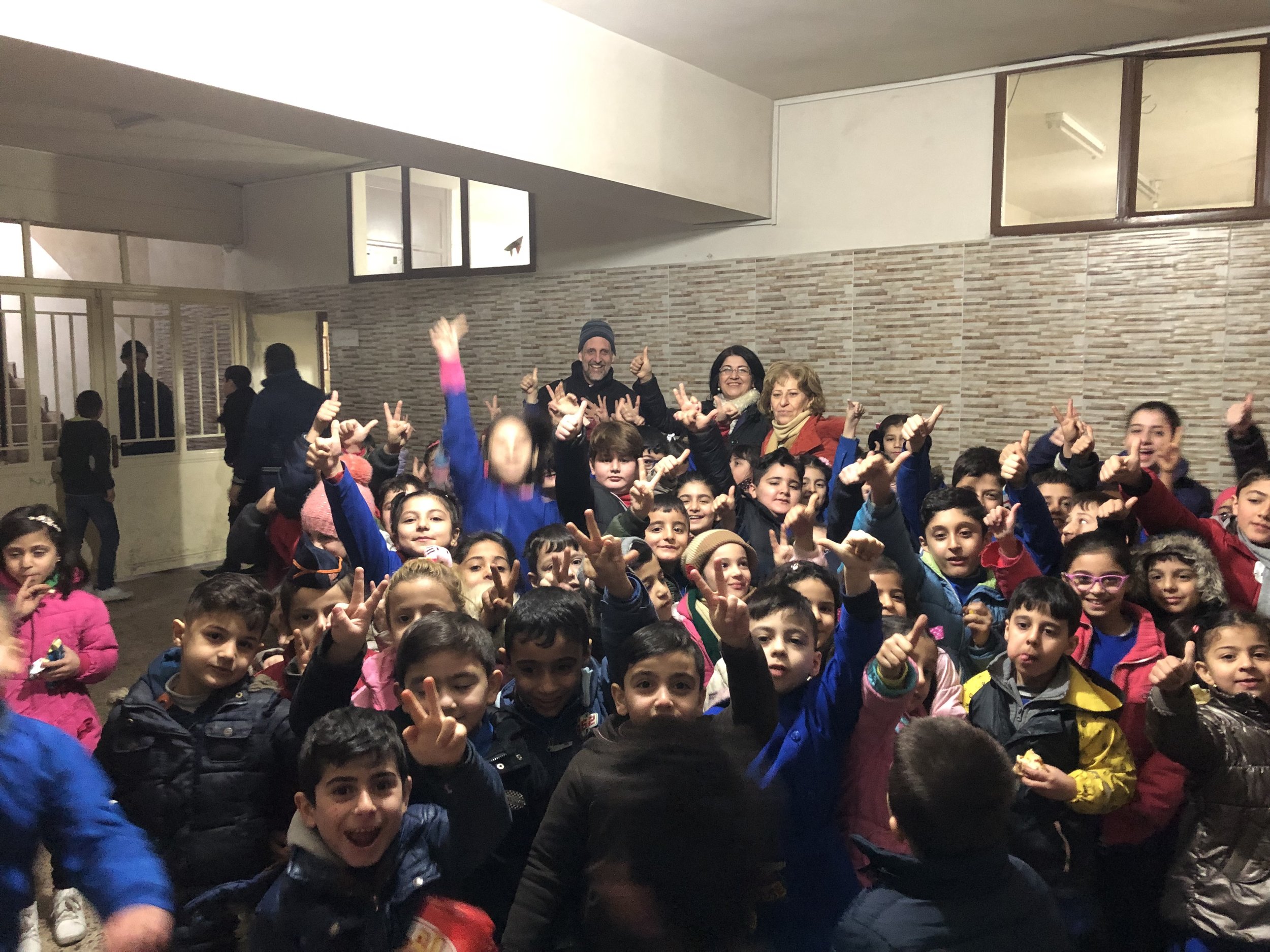Lebanon/Syria #6: Education: From Desperation to Hope
by Mike Kuhn for the team
“And David ran quickly toward the battle line …” (1 Samuel 17:48)
We spent the day in Hasakeh, a city in northeast Syria. The region is known as the “Jazeera” (peninsula) because it lies between the Tigris and the Euphrates. I learned that the area is dominated politically and militarily by the Kurdish forces who have cut a deal with the Syrian regime. The deal shielded the region from some of the atrocities of ISIS, but not all. What surprised me is that the Kurdish domination has led to the closure of many public schools. It seems the Kurds want all education to be in the Kurdish language, even though only about 20% of the population is Kurdish. Once again, it is the most weak and vulnerable (the kids) who become the victims of political aspirations to power. But church-affiliated schools remain in operation…a window of opportunity.
We visited the school in Hasakeh. Having lived in the Arab world for nearly 30 years, I’ve been to so many Arab schools I can’t count them. But this one is different and I could see and feel the difference. It is run by the tiny Presbyterian Church in Hasakeh, pastored by a woman of boundless energy who I now know simply as Matti or Mathilde. Before we left for Hasakeh, we also visited the school in Qamishli…you guessed it, run by the tiny Presbyterian Church in Qamishli. Education appears to be important to these Christians, important enough that they’ve taken the baton and become leaders in education in their respective regions.
In both schools (Qamishli and Hasakeh) we find ourselves wading into a sea of children from KG to 9th grade. The kids swarm around us…bright eyes, big smiles, beautiful features. I think I heard the simple phrase a million times “what’s your name” in that all-too-familiar Arabic accent. I also asked them for their names, in English, which they were happy to provide. The kids, of course, wanted to try out the few English phrases they knew. We were the only English-speaking visitors they had seen. Remember the Syrian war has kept foreigners out for the past eight years.
The kids are from every background represented in this area. Chaldean, Kurdish, Sunni Muslim, Assyrian, etc. I learned later from Matti that approximately 80% of the school is Muslim. The same was true in Qamishli. You can imagine that registration in the schools has exploded due to the Kurdish closure of public schools.
On these journeys you run into amazing people. One of those was the Bible teacher in the Qamishli school. The woman must have memorized the whole Bible. She was excited about impacting the lives of the kids of her homeland with the stories of David, Nehemiah, Elijah, Peter, etc. Her enthusiasm was contagious as we both shared a love of those life-shaping stories. She let me know that, though “proselytism” is prohibited by law, she is able to share the stories of the Scriptures with all her students. She felt, and I agree, that these simple stories would tip the scale of societal values in her homeland from desperation to hope, from militancy to peace, from blind religious zeal to informed spiritual truth.
When I got back to our hotel last night, I remembered one of the stories…the ruddy shepherd David running courageously to the battle line to face and slay the giant. It occurred to me that most Western mission efforts have relinquished education as a mission strategy. These churches realize that influencing education is key to their survival and the well-being of their country. Though small in number and demoralized by the flight of other Christians from the area, they are running to the battle. The church is still here, still holding on and still seeking to be “salt and light,” transforming the next generation through education. As one who has dedicated his life to mission in this region, it’s something I’ll ponder long and hard. Being here remind me that it’s the Jesus-followers who live here who know best what their society needs
Rev. Mike Kuhn, International Theological Education Network (EPC), Bellingham, Wash.


